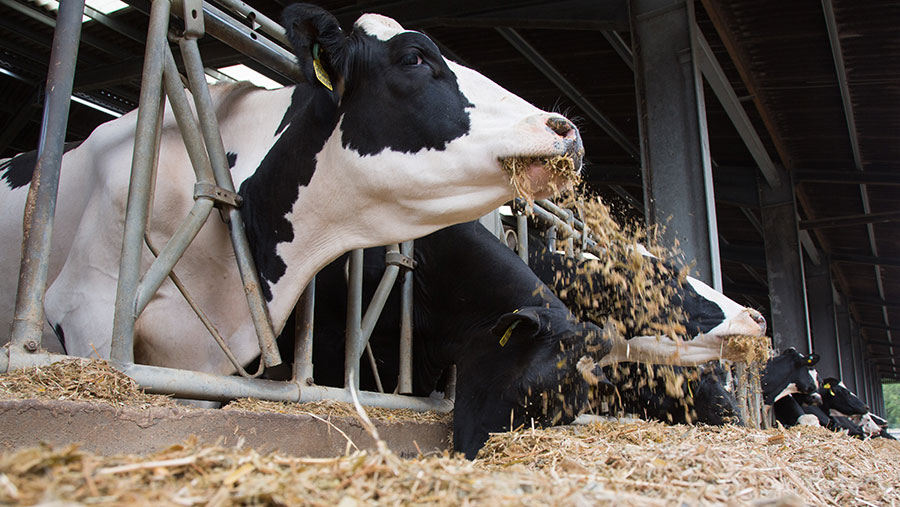UK Dairy Day: Fix variable costs now, dairy farmers advised
 © Tim Scrivener
© Tim Scrivener Dairy farmers are being advised to fix prices for fertiliser and feed as they head into the winter.
Many dairy farmers are reluctant to lock into contracts because they are concerned milk prices will fall, explained John Allen, managing partner at Kite Consulting.
“There is a reluctance to manage risk. Farmers are hesitant about milk prices and believe they are going to fall, and if they fix forward on fertiliser and feed, they will have higher feed and fertiliser prices and a lower milk price.”
See also: Farm groups criticise energy support package for businesses
Speaking to Farmers Weekly at the UK Dairy Day, Mr Allen said he could not “underwrite the milk price and guarantee” it was going to stay as good as it is today.
But he suggested it was unlikely to fall significantly, with medium-term analysis by Kite showing it would remain relatively stable into next year.
He said the drought in Europe and environmental policy constraints had resulted in a decline in milk production and this would further support stronger prices.
Overall, average daily deliveries for the EU-27 were down by 0.4% – the equivalent of 43.8m litres for June, according to the AHDB.
Energy prices are expected to jump 250-350% from its current 1.3p/litre this autumn when contracts expire.
Wait for more information
Currently, Mr Allen is advising producers to wait until the industry knows more about the government’s support package for businesses.
“There is more upside risk on feed and fertiliser than downside risk. Fertiliser is likely to go up with the gas prices and factory closures,” he predicted.
“Take cover [on these]. Reduce the exposure to your business. Have a risk-management strategy. One thing for sure in life is you will never get everything right; you just have to make the best possible decision at the time.”
Kathryn Rowlands, senior farm services manager at Kingshay, echoed this sentiment. “There is more farmers can do to make marginal gains and trim costs, where possible,” she said.
Figures from Kinsghay’s cost report for July show the average milk price was 45.90p/litre, 2-3p/litre lower than the headline figures of 48-49p/litre quoted by milk buyers for the same month.
She stressed farmers must make the most out of their milk contract and focus on any leakages in their system.
“The easy wins will have already been done. The challenge will be improving efficiency further – a key area to focus on is health and fertility, as this can affect loss of milk production and culling cows,” said Mrs Rowlands, highlighting that the cost of these inefficiencies become more pronounced as milk prices rise.
Richard Simpson from Kingshay said forage stocks would be a key concern for many, particularly in the South West, and encouraged those affected by the drought to assess options.
He said if buying in forage was not an option, farmers should consider reducing stock numbers by selling beef animals or culling inefficient animals.
“A lot of people have said maize will be better than expected. Some crops are terrible, but quite a few reports of early harvest are better than feared. If the cob is decent, it should be a decent crop,” he added.
But both reiterated the focus should be on maintaining production to help spread costs.
In numbers
- 61% Percentage of producers that have negative forage stocks, according to the quarterly Kite report for Aug 2022
- 250-350% Expected increase in power contracts this autumn
